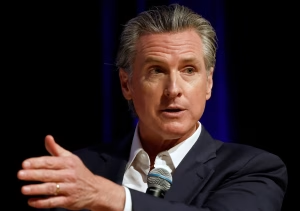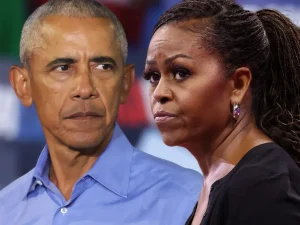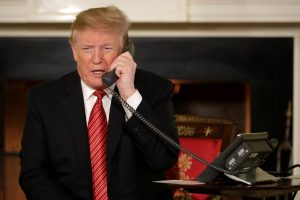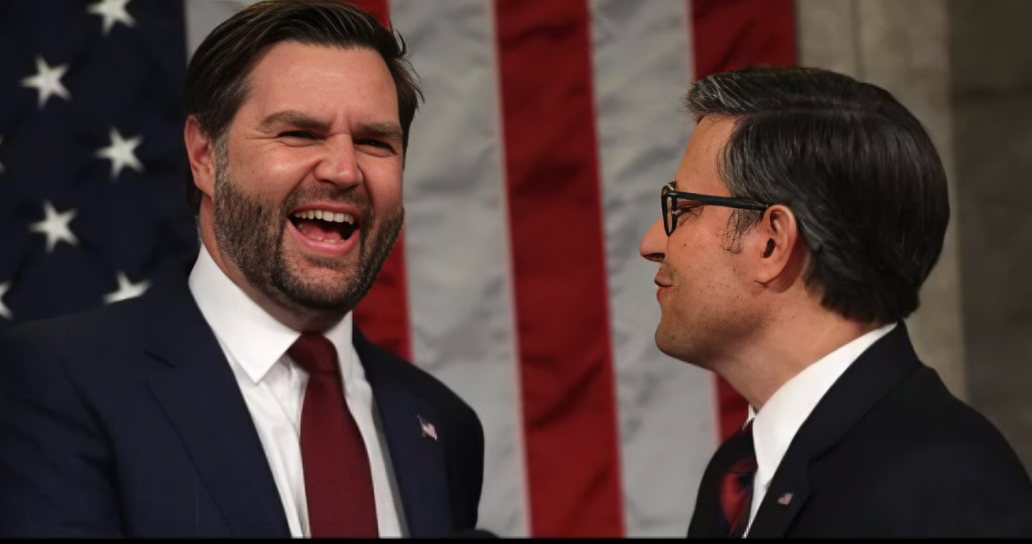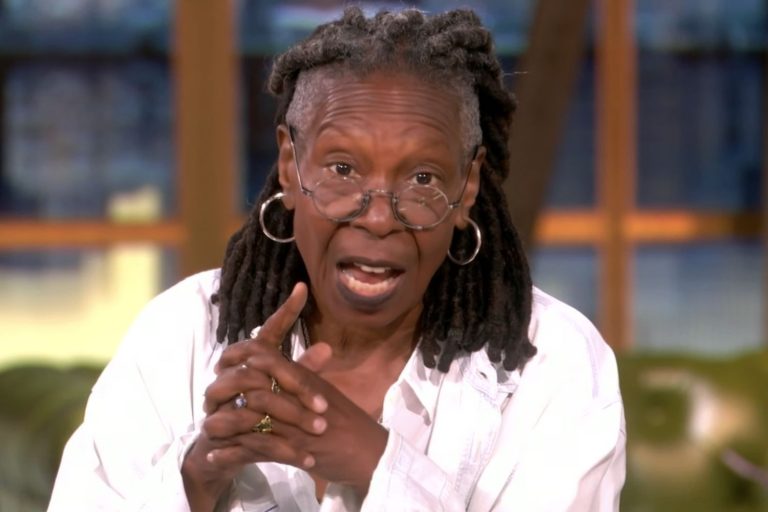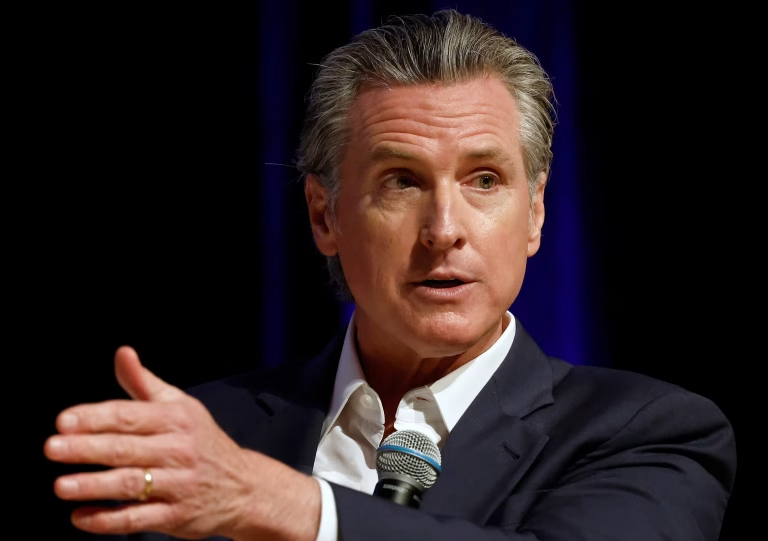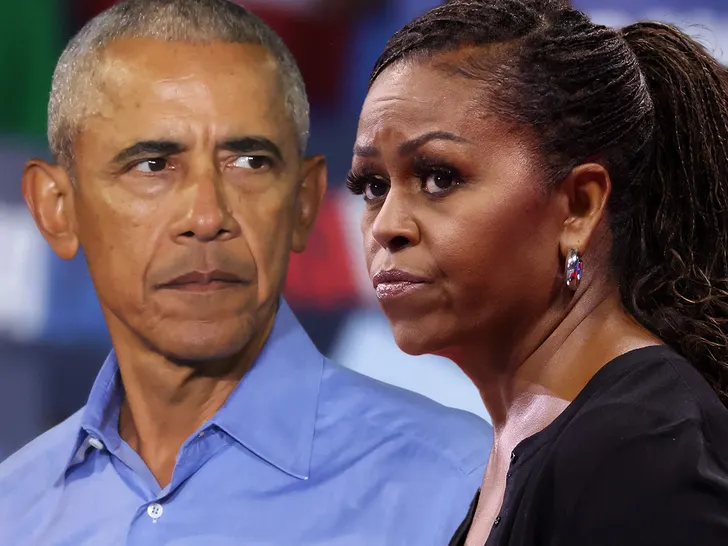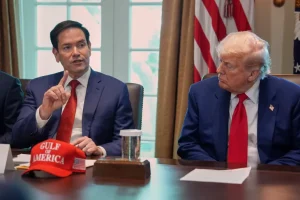House Speaker Mike Johnson on Sunday intensified his criticism of the nationwide “No Kings” demonstrations that drew millions of protesters across the United States, characterizing the rallies as evidence of “a rise of Marxism within the Democratic Party” and accusing organizers of weaponizing dissent to distract from ongoing government dysfunction.
In a contentious appearance on ABC’s This Week with Jonathan Karl, the Louisiana Republican argued that the protests were “not spontaneous expressions of public concern” but “a coordinated political operation designed to provide cover” for Democratic leaders amid the ongoing government shutdown.
“They needed a stunt,” Johnson said. “They needed a show. Chuck Schumer needs political cover right now. He’s shut down the government because he can’t negotiate in good faith, and this was part of that cover operation.”
The Speaker’s comments came less than twenty-four hours after an estimated seven million demonstrators gathered in over 2,700 cities and towns under the banner “No Kings” — a reference to what organizers describe as President Donald Trump’s growing authoritarian tendencies since returning to office in January. The rallies marked the third large-scale protest wave against the Trump administration this year, with events ranging from candlelight vigils to choreographed performances and mock coronations symbolizing resistance to what activists call “creeping autocracy.”
A Day of Peaceful Demonstrations — and Political Fallout
Across the country, streets filled with music, handmade signs, and carnival-like displays. Protesters wore costumes of inflatable eagles, liberty bells, and animals representing freedom and resistance. Chants of “No kings, just us” and “Power to the people” echoed from Washington’s National Mall to the streets of Los Angeles and Chicago.
While most demonstrations remained peaceful, isolated incidents of vandalism and aggressive rhetoric drew Republican condemnation. Some signs displayed phrases such as “Fascism must die” and “The crown will crumble,” which Johnson cited as evidence that the movement harbors “deep resentment and anti-American sentiment.”
“I congratulate them on having a mostly peaceful, free-speech exercise,” Johnson said. “But when you look at some of the hateful, violent rhetoric — signs calling for harm to political figures, chants demonizing half the country — that’s not patriotism. That’s ideological extremism dressed up as activism.”
The Speaker’s remarks echoed those of other administration allies, including House Majority Leader Steve Scalise and Senator J.D. Vance, who have labeled the protests “Hate America rallies” and accused organizers of being infiltrated by antifa groups and pro-Palestinian activists. Conservative media outlets amplified those claims throughout the weekend, framing the demonstrations as the latest manifestation of what they call “the radicalization of the American Left.”
Trump’s Crown Moment Adds Fuel
Adding to the controversy was an image posted by the Trump campaign’s official War Room account shortly before Saturday’s main Washington rally — a digitally altered photo of a smirking Trump wearing a gold crown. The image, intended as a jab at critics who accuse the president of acting like a monarch, quickly went viral and was widely shared by both supporters and opponents.
During an earlier appearance on Fox News’ Sunday Morning Futures, Trump addressed the “king” narrative directly. “People are saying I act like a king,” he told host Maria Bartiromo. “I’m not a king — I’m a president who actually gets things done.”
Democratic leaders and protest organizers seized on the image as symbolic of what they call “Trump’s imperial mindset,” while Johnson used it as rhetorical ammunition to mock what he called “performative outrage.”
“The irony is crystal clear,” Johnson said Sunday. “If President Trump were actually a king, the government wouldn’t be shut down right now. And those protesters wouldn’t be out on the Mall exercising their First Amendment rights — which, by the way, they’re only able to do because President Trump kept the National Park Service funded for that day.”
The Shutdown Context
The “No Kings” rallies unfolded against the backdrop of a prolonged government shutdown — now entering its second week — triggered by stalled budget negotiations between House Republicans and Senate Democrats. Johnson has insisted that Democrats are holding federal operations “hostage” to force spending on what he calls “radical climate and welfare priorities.”
Senate Majority Leader Chuck Schumer has pushed back, accusing Johnson of “governing by chaos” and demanding that the House take up a bipartisan funding measure already passed in the Senate.
Analysts note that both parties appear to be using the protests to frame the broader narrative of responsibility. Democrats point to the mass mobilizations as proof of public fatigue with “Trumpism’s authoritarian drift,” while Republicans argue that the rallies are a distraction from legislative gridlock.
“This is political theater on both sides,” said Dr. Rebecca Lyons, a political scientist at Georgetown University. “The protests reflect genuine grassroots concern about democratic norms, but the response from Republican leadership shows how everything now becomes a proxy battle in the culture war.”
Johnson’s Ideological Warning
Beyond partisan sparring, Johnson framed the protests as evidence of a more profound ideological divide within American society — one that, in his view, threatens the foundations of the republic.
“It’s not about the people; it’s about the message,” he told ABC. “It’s about the ideology. What we’re seeing is Marxism dressed up as social justice — a worldview that says government should control everything, that undermines faith, family, and freedom. That’s not who we are as a nation.”
Johnson, a former constitutional lawyer and evangelical conservative, has long presented his politics as rooted in a defense of “faith-based American exceptionalism.” His critics say such rhetoric inflames division and equates dissent with disloyalty. But among Trump’s base, Johnson’s framing has solidified his standing as one of the president’s most articulate defenders on Capitol Hill.
“He’s not afraid to call things by their name,” said Rep. Marjorie Taylor Greene (R-Ga.). “The Marxist Left is on the march, and Mike Johnson is standing in the gap.”
Organizers Push Back
Leaders of the “No Kings” coalition — a loose alliance of progressive nonprofits, labor unions, student networks, and veterans’ groups — rejected Johnson’s accusations as “paranoid and dishonest.”
“This was one of the most peaceful nationwide protests in recent memory,” said coalition spokesperson Laura Chen. “We had artists, teachers, nurses, veterans — ordinary Americans who love their country and want to defend democracy. To call them Marxists is lazy and dangerous.”
Chen added that while organizers disagree with Trump’s policies, “the movement isn’t about left versus right — it’s about the rule of law versus rule by one man.”
Several Democratic lawmakers also defended the demonstrations, portraying them as a healthy expression of civic engagement. “When millions of citizens stand up to say that no leader, Republican or Democrat, is above the Constitution, that’s not Marxism — that’s patriotism,” said Rep. Jamie Raskin (D-Md.).
What Comes Next
With the shutdown dragging on and both parties hardening their rhetoric, the “No Kings” controversy appears poised to become another flashpoint in the broader struggle over American identity heading into 2026.
Political strategists say Johnson’s decision to frame the protests as ideological warfare may energize conservative voters but risks alienating moderates who see the demonstrations as legitimate dissent.
“Johnson is playing to the base,” said GOP consultant Mark Reynolds. “He’s shoring up support among Trump loyalists by painting the opposition as radical. But the danger is that it reinforces the perception that Republicans are dismissive of public protest and free expression.”
For now, Johnson appears unfazed by such concerns. As he ended his ABC interview, the Speaker reiterated his central warning: “We are in a battle of ideas. The American people have to decide whether we still believe in liberty under God, or whether we’ll trade that for the false promises of socialism. That’s what this moment is really about.”

Emily Johnson is a critically acclaimed essayist and novelist known for her thought-provoking works centered on feminism, women’s rights, and modern relationships. Born and raised in Portland, Oregon, Emily grew up with a deep love of books, often spending her afternoons at her local library. She went on to study literature and gender studies at UCLA, where she became deeply involved in activism and began publishing essays in campus journals. Her debut essay collection, Voices Unbound, struck a chord with readers nationwide for its fearless exploration of gender dynamics, identity, and the challenges faced by women in contemporary society. Emily later transitioned into fiction, writing novels that balance compelling storytelling with social commentary. Her protagonists are often strong, multidimensional women navigating love, ambition, and the struggles of everyday life, making her a favorite among readers who crave authentic, relatable narratives. Critics praise her ability to merge personal intimacy with universal themes. Off the page, Emily is an advocate for women in publishing, leading workshops that encourage young female writers to embrace their voices. She lives in Seattle with her partner and two rescue cats, where she continues to write, teach, and inspire a new generation of storytellers.

